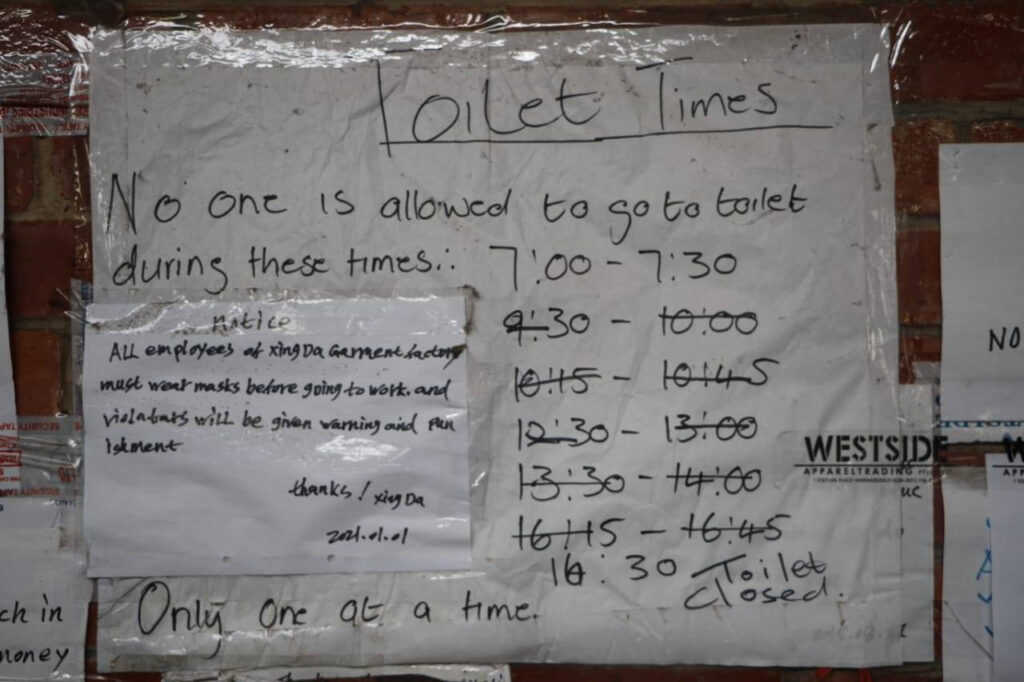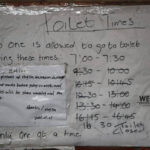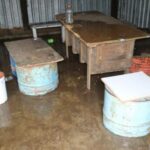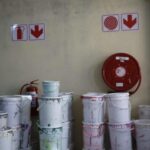25 January, 2024In December last year labour inspectors from the department of employment and labour visited textile and garment factories in Mandeni in KwaZulu Natal Province, about 80 km from Durban, and were shocked by the deplorable working conditions that they witnessed.
These conditions included 12 long working hours with only 30 minutes lunch break. Occupational health and safety violations are common, with workers facing restrictions when going to the toilets and having lunch in areas with unsanitary conditions. Some chemicals used in the factories were unlabelled and handled without personal protective equipment and in some instances placed in front of fire equipment. Some fire escapes were blocked creating hazardous environments in case of fire.
Further, the factories paid wages that were below the minimum wages for the garment and textile industries. Some of the employers were paying R10 per hour (US$0.53) instead of the industry’s minimum wages as agreed upon in the National Bargaining Council for the Clothing Manufacturing Industry, made up of unions and employers. The rates in the collective bargaining agreement were above the national minimum wage which is R25.42 per hour (US$1.40).
IndustriALL's affiliate the Southern African Textile and Workers’ Union (SACTWU), said some of the non-complying factories were operating as unregistered cooperatives to evade national labour laws and collective bargaining agreements. For example, the factories were paying below the minimum wage that was agreed upon in collective agreements and instead paid paltry wages based on piece rates.
By using unregistered cooperatives, the factories were also violating the cooperatives’ laws and undermining union strategies to leverage wages on collective agreements. SACTWU has used the extension of collective agreements to non-parties – those factories not represented in bargaining councils – as a strategy to ensure that workers received living wages.
SACTWU’s provincial organizer for KwaZulu Natal, Patrick Mthembu, said:
“The union is recruiting and organizing the workers as one of the strategies to enable the declaration of labour disputes with some of the offending factories. It is difficult to declare a dispute if the workers are not members of the union as this is part of the legal requirements to take up issues for conciliation, mediation, and arbitration.”
SACTWU is organizing workers at the factories who include migrant workers.
“Factory owners must respect and allow workers to enjoy the rights at work in the textile and garment factories. South African trade unions, including SACTWU, have fought hard for the enactment of the national labour laws and for the ratification of international labour conventions on workers’ rights and collective bargaining and these gains must be protected through compliance,”
said Paule France Ndessomin, IndustriALL regional secretary for Sub-Saharan Africa.
According to the Basic Conditions of Employment Act, inspections are carried out to investigate complaints and to ensure compliance on working hours, leave, contracts of employment and wages, prohibition of forced and child labour, variation of employment according to collective bargaining agreements and sectoral determinations and other working conditions. Further, the inspections are carried out to promote international labour standards and fundamental rights at work.



